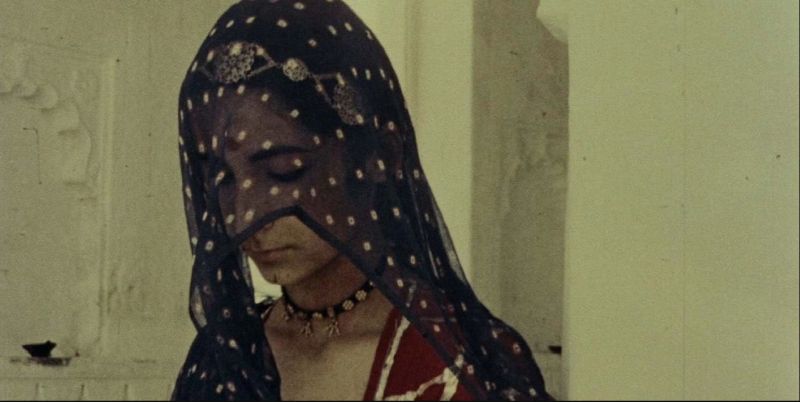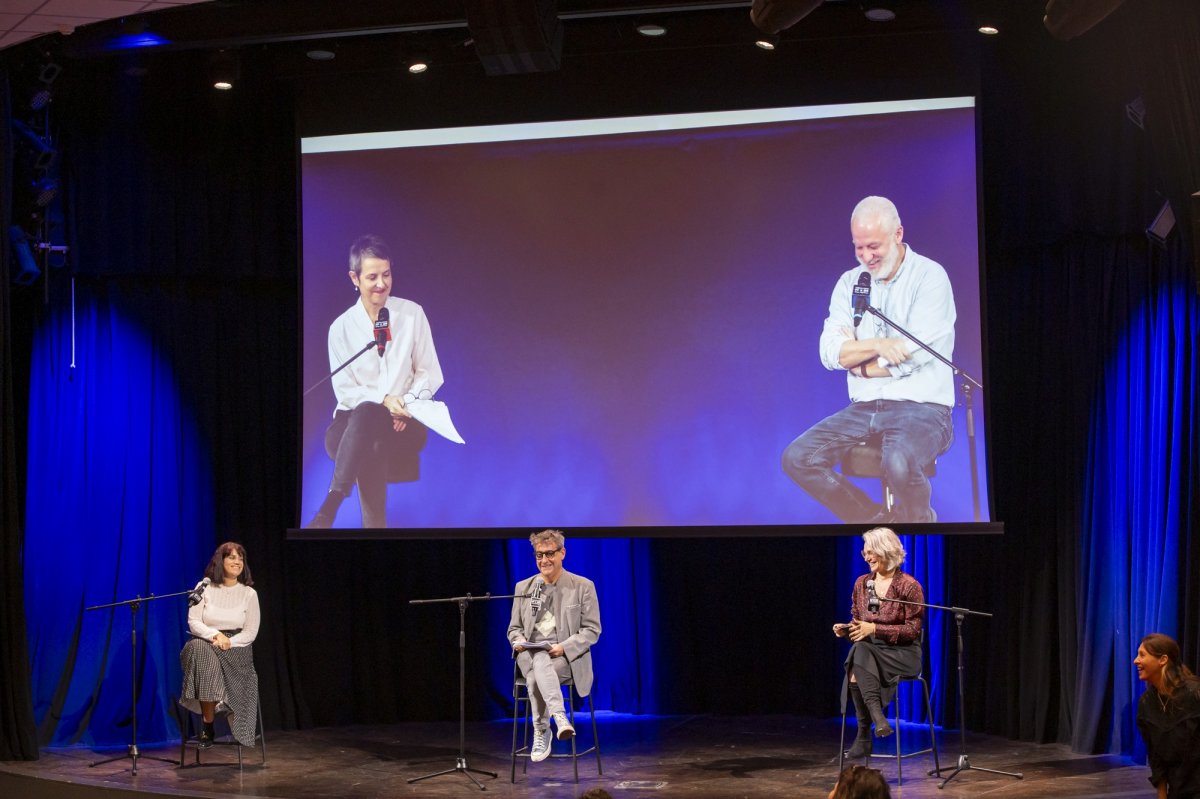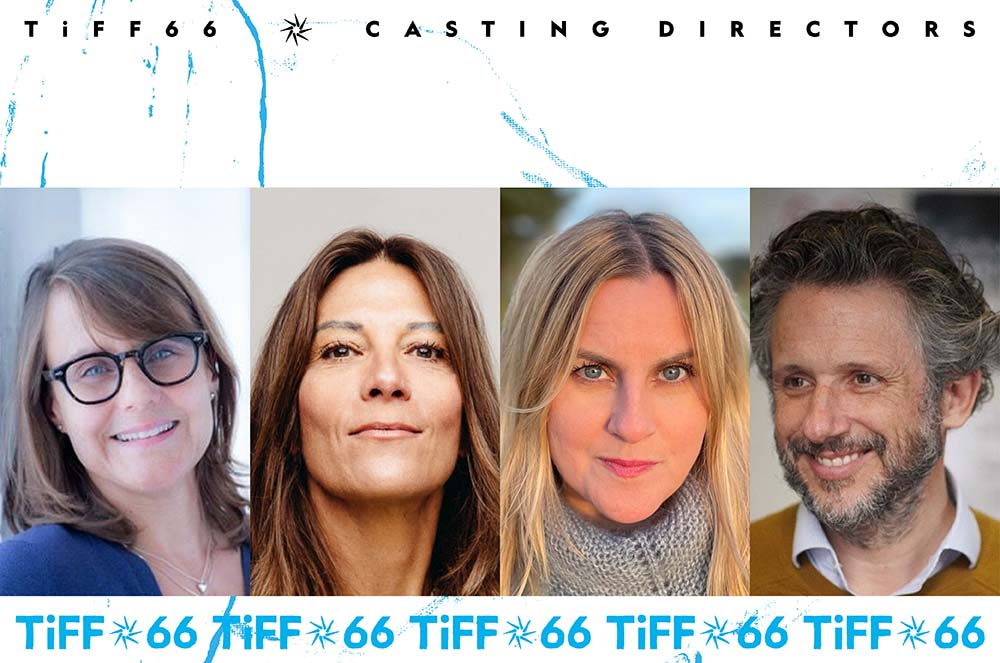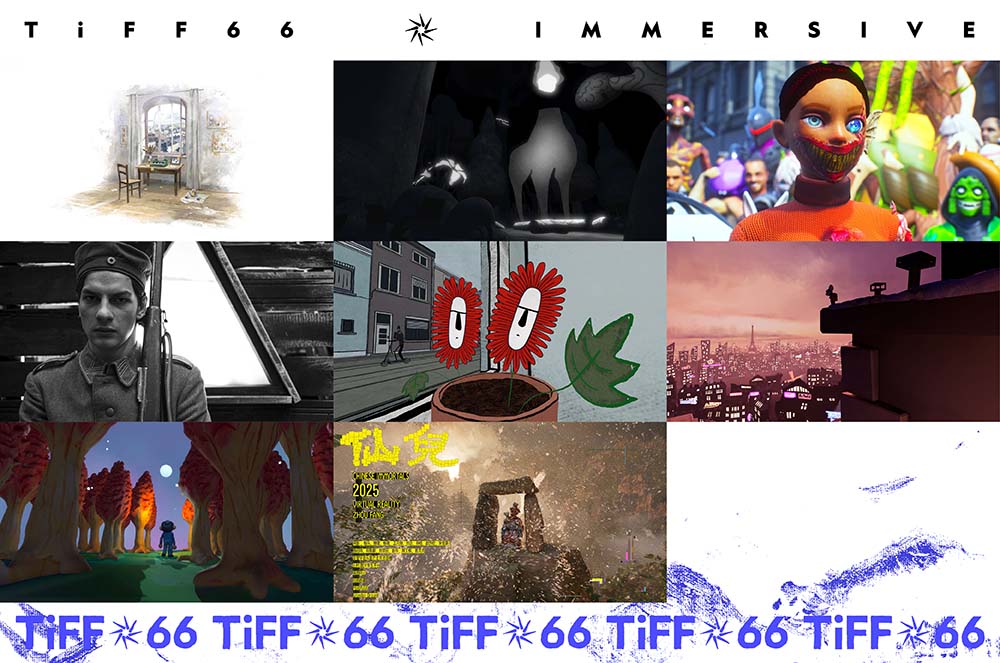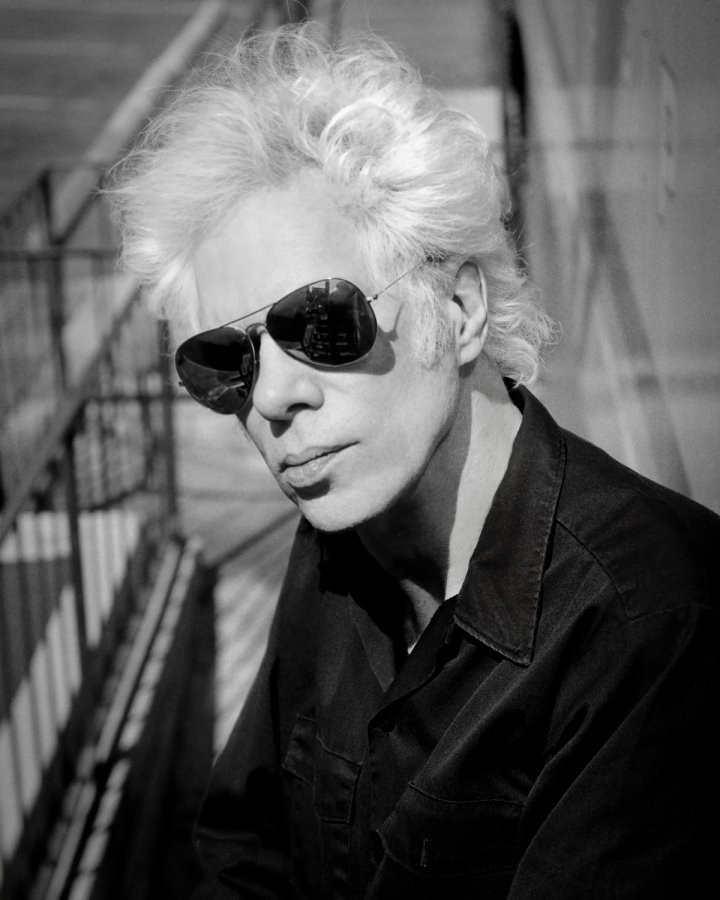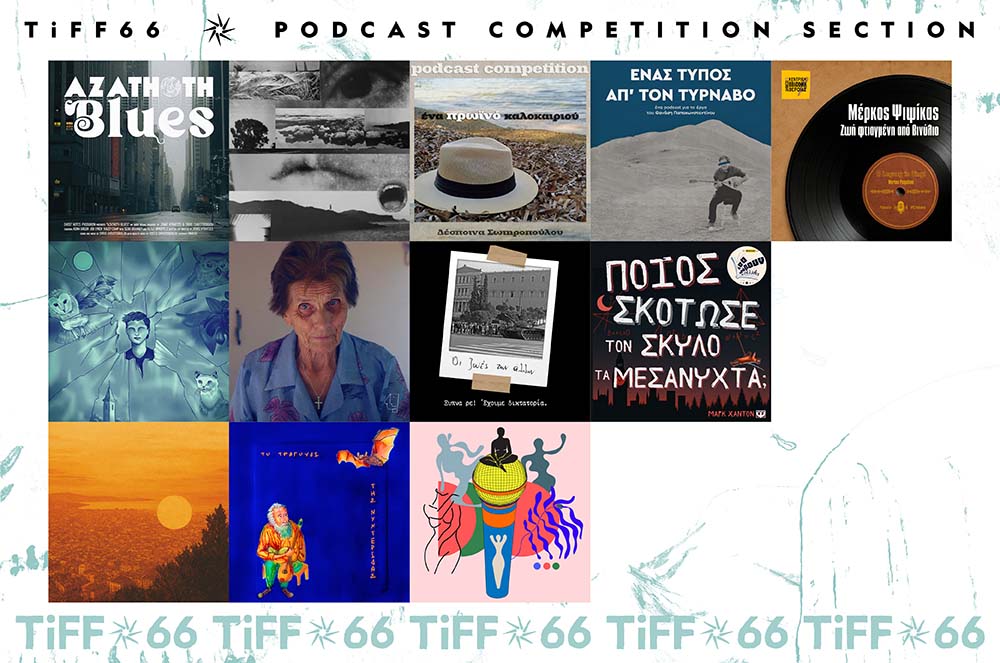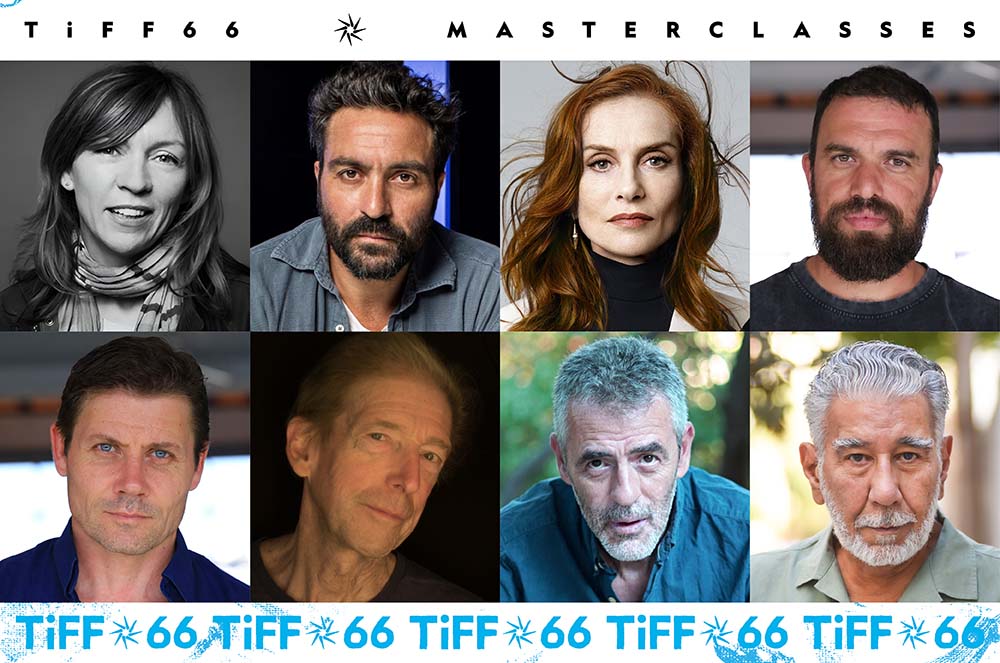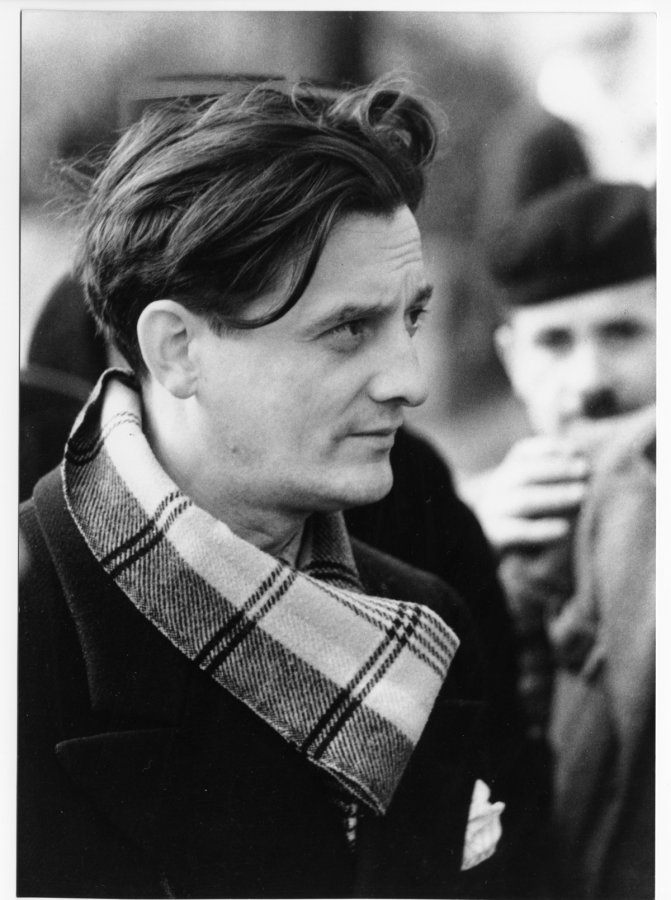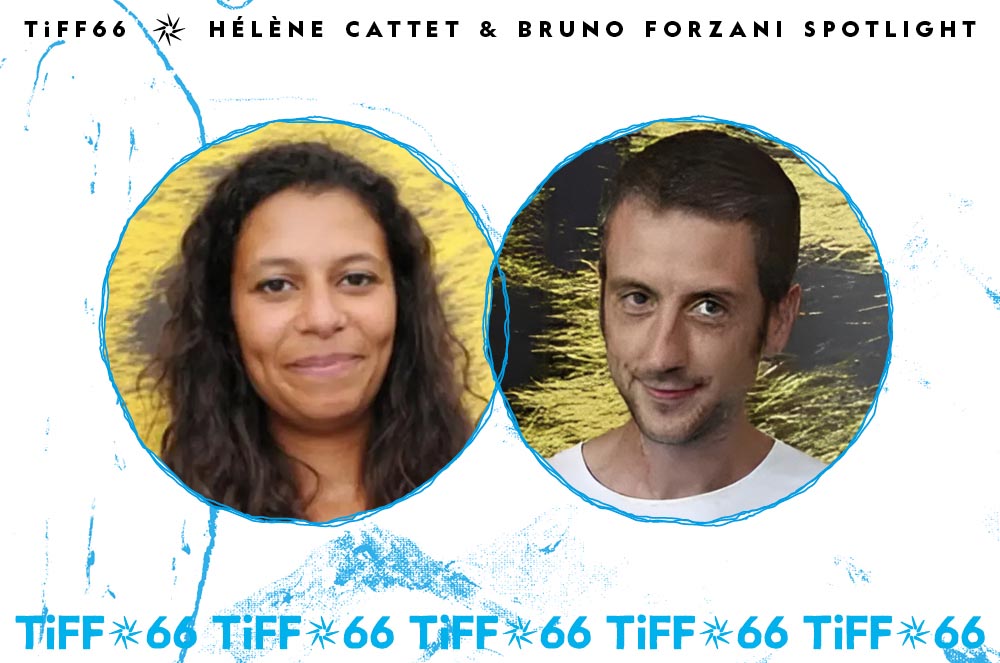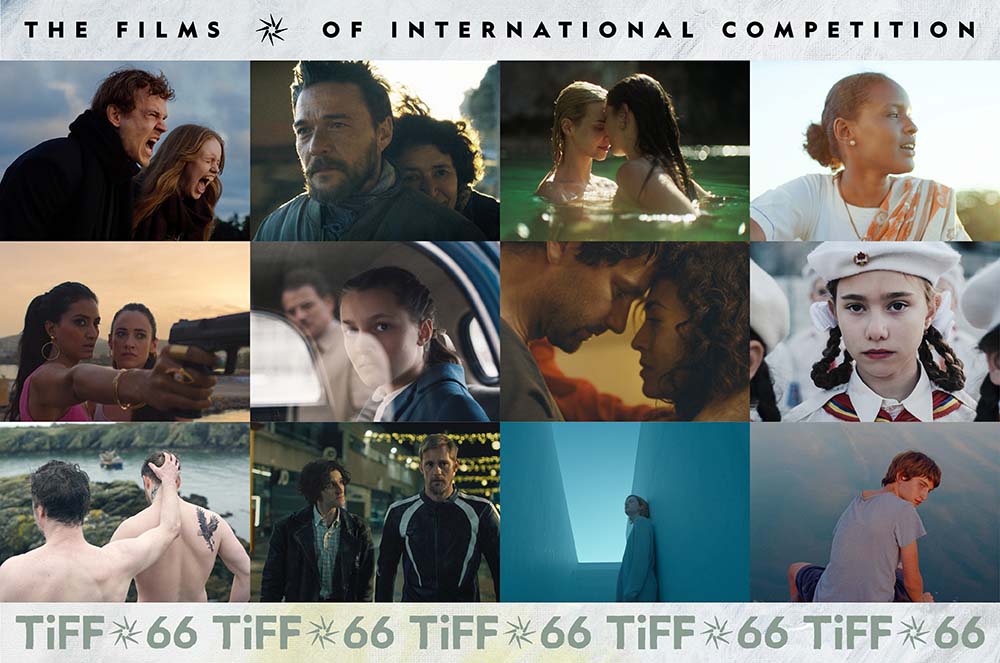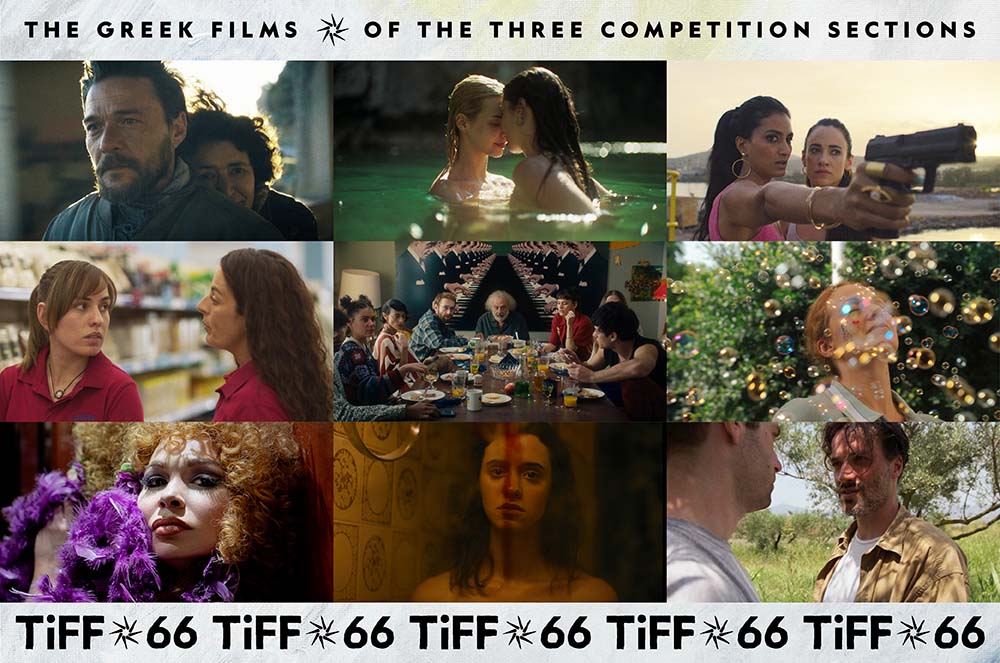Invisible and tangible ghosts, both scary and familiar, real and allegorical, will take center stage in the large-scale tribute of the 64th Thessaloniki International Film Festival, curated by the artistic director of the New York Film Festival and internationally acclaimed film critic, Dennis Lim.
The Festival, held from 2 to 12 November 2023, brings forth one of the most powerful symbolisms in the history of mankind and cinema: ghosts, the spectral forms that haunt us and reside at the very place where imagination pairs up with folklore beliefs, unspoken fears and the timeless attraction of the humankind towards the otherworldly.
“An art of illusion and reanimation, cinema is perhaps the ghostliest of mediums. Ghosts are themselves cinematic in essence, automatic disruptions in space and time. I’m thrilled to collaborate with the Thessaloniki International Film Festival on a program that brings together a wide array of cinematic hauntings, in hope of illuminating the deep kinship between ghosts and movies” says Lim.
Ghosts were born and traveled across the centuries through folk tales and myths, as an inextricable part of a universal tradition. Balancing between the invisible world and the gaze of the visible, ghosts can be interpreted as a human mind’s effort to comprehend the intangible, the irrational and the transcendental. The ghosts that inhabit dark theaters invite us into the realm of a magical and enchanted universe, governed by shadows, illusions and visions.
Through the tribute “Fantasmas”, the Festival explores the underlying symbolisms and the hidden allegories behind the depiction of ghosts in films. The ghosts of history that do not allow the collective traumas to heal. The ghosts of politics that still shape the way we see and perceive the world. The ghosts of faith that retrace our most profound agonies. Our personal ghosts that mirror the losses of yesterday and the expectations of tomorrow.
The tribute is the source of inspiration for the 64th TIFF’s main visual art exhibition titled “FANT SM S”, showcasing the works of Nikos Kessanlis, Vlassis Caniaris, Celia Daskopoulou and Jason Molfessis, four iconic Greek visual artists that left their mark in the European art of the 20th century. The exhibition will be hosted at the Glass House (Pier 1, Port of Thessaloniki), with free admission for the public, during the Festival.
Τhe Festival’s bilingual special edition will be dedicated to ghosts and will include texts and analyses by film theorists and creators, an editorial text by Dennis Lim, as well as a presentation of the films.
Let’s take a glance at some of the tribute’s films:
A Letter to Uncle Boonmee (2009) Apichatpong Weerasethakul
"In Nabua in December 2008, I located several houses that I thought would be suitable as Uncle Boonmee’s house in the proposed feature film. This short film is a personal letter describing my Nabua to Uncle Boonmee. The film consists of shots of the houses’ interiors in the evening. They are all deserted except one house with a group of young soldiers, played by some teens of Nabua. Two of them impersonate me by narrating the film". (A.W.)
Atlantics (2009) Mati Diop
A fire glowing in the heart of the night gathers around it three men who share the experience of forced movement, as well as the thousands of spirits of people lost at sea, seeking a better future on the horizon. Opening with an evocative scene that links the wheels of the boat’s engine with the spinning wheel that winds the thread of the story, Mati Diop weaves an admirably succinct narrative about the fragments of spirits awakening from the fever of flight, which is always “a nightly invader that strikes the patient during deep sleep.” Atlantics (Atlantiques), a capsule of dense cinematic time, is like a spin-off or a prequel of the 2019 film Atlantique (also titled Atlantics in English), which made its director the first Black woman director to win an award at Cannes. As the ocean passes from the plural to the singular, we remember how often the word “spooks” has appeared on the lips of racists, and how the history of humanity is nothing but a history of migration.
Blue (2018) Apichatpong Weerasethakul
A woman lies awake at night. Nearby, a set of scrolled theater backdrops unrolls to reveal two alternate landscapes. Blue offers a deceptively simple, choreographed dance of scrolls and a portrait of feverish slumber between dream and reality. Filmed during 12 nights in the heart of a Thai forest.
Celine and Julie Go Boating (1974) Jacques Rivette
In a world organized in pairs of opposites, a librarian who loves metaphysical experiments happens to meet a performer who makes a living by doing magic tricks. The two become fast friends and roam around Paris, seeking in the most unexpected places the solution to a riddle that haunts an otherworldly mansion – the house of fiction, where a mysterious spectacle that holds a young girl hostage unfolds each day. Fast-flowing as the bed of the Seine, psychotropic and imaginative, delirious yet elaborately structured and calculated down to the last continuity edit, dreamlike and carnal, this fascinating cinematic game by the most overlooked Nouvelle Vague filmmaker reintroduces us to familiar ghosts, while seeming to take us on a tour of the outside world for the first time. A unique cinematic experience, a truly special case in the history of cinema, it continues to inspire new narratives while reproducing itself from within like a Russian doll on each new viewing.
Dead Man (1995) Jim Jarmusch
On the run from the law, having killed a man in self-defense, the accountant William Blake meets a Native American poet called Nobody, who prepares him to pass over into the spirit-world. The gradual fading away of a person, slowly stripped of the corrupt trappings of their life, is transformed by the great Jim Jarmusch into a spine-tingling cinematic poem. Guided along too by the exquisite electro-acoustic guitar chords of Neil Young, this masterful film by Jarmusch serves as the processional litany of a soul entrusting its weight to the earth, letting the final curtain fall on the makeshift performance that was the existence of William Blake (an extraordinary Johnny Depp in perhaps the greatest role of his career), all directed with dream-like grandeur; and by means of this strange nobody, it feels like Jarmusch is ushering out, and bidding farewell to any and every being in this pitiless universe that, having lived, must also die. Is everyone alive a ghost-to-be? For this Dead Man, yes.
Decasia (2002) Bill Morrisson
The first film of the 21st century to win a place in the Library of Congress – having been deemed by the National Film Registry to be a flagship example of American film heritage – is also a spectral archive boasting a singular aesthetic. An archaeologist of cinema offers up a symphonic work here, a rhythmic composition made up of film strips in early or advanced states of degradation, where signs of decay on the celluloid become elements of a narrative that encompasses the entire history of the cinematic experience and substitutes the precision of film historiography with the ecstasy of the ephemeral. It is a cyclical work – like the dance of the dervishes in the shots that open and close the film, like a reel spinning steadily inside a movie projector, like the human experience of time itself. And as the first bona fide contemporary masterwork of the new millennium, built upon the resplendent forgotten ruins of the past, it convinced even Kenneth Anger to call it the most compelling and disturbing thing he had ever seen, and forced the documentary filmmaker Errol Morris to concede it was the greatest film in history.
Duvidha (1973) Mani Kaul
In the early 1970s, a small film crew arrived in a village in the state of Rajasthan in northwest India. It was headed by director Mani Kaul, an iconic figure of Indian arthouse cinema, who was determined to adapt a classic ghost story for the big screen – but without a script, guided mainly by his haunted mind. Shot with a handheld Bolex, with a slow, 16mm night film and the active participation of the villagers (who refrained from using electricity during the shoot and offered to whitewash every corner that would be visible on screen), the story of the love of a young bride and a ghost that takes her husband’s form has survived through time as a monument of artistic perfection; it is also a singular example of how ingenuity can overcome indigence and how the unique creative vision can (and must) meet collective action.
Emerald (2007) Apichatpong Weerasethakul
In The Pilgrim Kamanita, a Buddhist novel written in 1906 by the Danish writer Karl Gjellerup, the protagonists are reborn as two stars and take centuries to recite their stories to each other, until they no longer exist. Morakot is a derelict and defunct hotel in the heart of Bangkok that opened its doors in the 1980's: a time when Thailand shifted gears into accelerated economic industrialization and a time when Cambodians poured into Thai refugee camps after the invasion of Vietnamese forces. It was a hosting time. Later, when the East Asian financial crisis struck in 1997, these reveries collapsed. Like Kamanita, the unchanged Morakot is a star burdened with (or fueled by) memories. Apichatpong collaborated with his three regular actors, who recounted their dreams, hometown life, bad moments, and love poems, to re-supply the hotel with new memories.
From the East (1993) Chantal Akerman
“A specter is haunting Europe – the specter of communism”: a journey that begins a little after the fall of the Berlin Wall (“before it is too late,” in the words of Chantal Akerman) – moving from western Europe into its east (from Poland into the heart of the Soviet Union), from summer into the depths of winter, and from a hermetic present into a complex, collective, and personal past (given that the director’s mother was a Polish- Jewish survivor of the Holocaust) – is not a reckoning with the first line of the Communist Manifesto; rather, it is a travel diary comprised of elegiac tracking shots, gliding from public spaces into private ones, and from solitary inner landscapes into the stark desolation of crowds. Keeping its precious interiority pristine, this Akerman masterpiece brings to life an unfamiliar and dogged world that no longer exists, immersing us in a contemplation of (or meditation on) the end of ideology, of history, of even the world we once knew.
Ghost of Asia (2005) Apichatpong Weerasethakul & Christelle Lheureux
The video installation Ghost of Asia (2005) is a collaboration between two film-makers, Apichatpong Weerasethakul and Christelle Lheureux, taking the recent tsunami in Asia as its starting point. For this double projection, the directors have used the idea of a ghost seen wandering along the rocky coastline of a Thai island and, in a life-affirming gesture, they have invited some local children to direct the film for them, suggesting and filming the movements of the actor-ghost. By projecting their own ideas onto this ghostly creature, half real, half imagined, the children’s fantasies are given real substance, their childish game mediated by the adult ‘game’ of shooting a film". – 2005 Andrea Viliani/ Castello di Rivoli Museo d'Arte Contemporanea
Inland Empire (2006) David Lynch
As an actress dedicated to her craft starts to adopt the persona of a character she is to play in a new film, her reality disintegrates and her inner world turns into a nightmare. Only so masterful a cinematic artist as David Lynch couldenvision and execute the utterly immersive deep dive made by a dramatic artist into the very essence of (their) acting in such an unimaginably original way. Inland Empire, one of the most acutely modernist, difficult to decipher, and outright thrilling works ever offered up by contemporary cinema, is also – at once – a brilliant parable that sets up cinema as a ghost of the collective unconscious. What Finnegans Wake is for literature, Inland Empire is for cinema: a tipping point beyond which art is unable to progress without risking its own phantasmagoric self-annihilation.
Last Year at Marienbad (1961) Alain Resnais
A nameless man hounds a nameless woman at a chateau in Marienbad filled with idle aristocrats. He insists they met in that place the year before and had a short but passionate affair. He says she had promised him then that they would meet again one year later. She denies this, insisting she remembers nothing of the sort. The man does all he can to convince her, showering the woman with details of their supposed romance in an attempt to bring her over to his version of the truth. In the deathless enigma of a film that is Last Year at Marienbad, an enduring monument of cinematic modernism, Alain Resnais offers up a meditation on the notions of memory, truth, and identity, inviting us to consider whether – as noted by Poe – what we see as reality is in fact but a dream within a dream, and whether that which we call “the self” is nothing but a phantom. He also wonders: if the lovers are like two mirrors facing one another, then what apparition are they reflecting into infinity?
Luminous People (2007) Apichatpong Weerasethakul
A group of people are in a boat traveling along the Mekong River that stretches along the Thai-Laos border. They are running against the wind, anticipating a farewell. In the middle of the river, the lady head of the family casts the ashes off into the stream. The white dust merges with the muddy water. The boat makes a u-turn at the bridge that links two countries. The passengers are tired and start to drift off into their own world. The film disintegrates. The crew and the cast wander off in the river of simulation. The border links the worlds of the dead and of the living. The memory of an anonymous dead father lingers. The boat still moves on as the dusk arrives. Apichatpong and his crew traveled to Nong Khai, a small town near Mekong River, and recruited local villagers to participate in the project. For two days while on the boat, the crew and cast reconstructed a fake ceremony and found a narrative. Later, some of the crewmembers watched the footage and their conversations were recorded. During the process, one of them reprised a story of his dead father who came to visit him in his dream. Apichatpong asked him to sing for the film.
Meshes of the Afternoon (1943) Maya Deren & Alexander Hammid
Meshes of the Afternoon is one of the most influential works in American experimental cinema. A non-narrative work, it has been identified as a key example of the "trance film," in which a protagonist appears in a dreamlike state, and where the camera conveys his or her subjective focus. The central figure in Meshes of the Afternoon, played by Deren, is attuned to her unconscious mind and caught in a web of dream events that spill over into reality. Symbolic objects, such as a key and a knife, recur throughout the film; events are open-ended and interrupted. Deren explained that she wanted "to put on film the feeling which a human being experiences about an incident, rather than to record the incident accurately. Made by Deren with her husband, cinematographer Alexander Hammid, Meshes of the Afternoon established the independent avant-garde movement in film in the United States, which is known as the New American Cinema. It directly inspired early works by Kenneth Anger, Stan Brakhage, and other major experimental filmmakers. Beautifully shot by Hammid, a leading documentary filmmaker and cameraman in Europe (where he used the surname Hackenschmied) before he moved to New York, the film makes new and startling use of such standard cinematic devices as montage editing and matte shots. Through her extensive writings, lectures, and films, Deren became the preeminent voice of avant-garde cinema in the 1940s and the early 1950s." - Museum of Modern Art, New York
Mothlight (1963) Stan Brakhage
In the summer of 1963, while Stan Brakhage was filming his epic Dog Star Man and forging his own cosmology in the process, he was also obsessively collecting the scattered remnants of moth wings, dry sprigs, seeds, blades of grass, and other bits of organic matter. He kept them like charms, pressed reverently between pieces of 16-mm Mylar – the “clear” polyester strips used in film editing. But once the artist had used up all his stock, running out of film, he decided to work directly with these prima materia drawn from reality, “reanimating” this personal still life by setting his microscopic collages into motion against the light. At times like a transfiguration of the rite that is the cinematic viewing experience (with beings drawn to and dancing before the film projector “flame”), at others like a metaphor for the fragile (unmediated and humble) nature of artistic creation, and always like a game in which the eye “must know each object encountered in life through an adventure in perception,” in the words of Brakhage himself, this hand-crafted work – originally titled Dead Spring – confronts and conquers death with each frame, 24 times per second.
Nostalgia (Hapax Legomena I) (1973) Hollis Frampton
Playing with both a structural principle of the cinematic medium (the synchronization of sound and image) and one of its core dimensions (to function as a machine for the reproduction of ghosts) with boundless gusto, the greatest polymath of the 1970s New York avant-garde devotes this first part of his Hapax Legomena cycle to nostalgia. He sets it, though, in brackets and openly wonders: can we feel nostalgia for the present? Via a sequence of 13 shots, each of which sees a photograph Hollis took of the New York arts scene ritually burned on a stove while the narrator has already moved on to describing the next still, this classicist poet, photographer, sculptor, critic, and filmmaker who set cinema on a new course explores the limits of representation, rescinding and resurrecting the capacity of the image to speak of reality.
On Blue (2012) Apichatpong Weerasethakul
In 2018, I made a film called Blue. In it, my regular actress Jenjira Pongpas Widner is unable to sleep. She is in a bed surrounded by banana trees. Nearby, a set of traditional theater backdrops unspools, revealing two alternate landscapes: a sunset over the sea and the foyer of a royal palace. Later on, her lack of sleep seems to set the place on fire. A flicker of personal and social recollections lingers on throughout the night. I imagine that Jenjira's insomniac fire will eventually die down and she will be able to sleep. Similarly, I reflect on the past years as we appear to have slept through the pandemic. Perhaps we are ready to wake up. On Blue was inspired by the moments of awakening, of sunrise. As uncertainty becomes the norm, I treasure this phenomenon's consistency. It's predictable yet brings tremendous change. Revisiting BLUE was like re-observing and rearranging a dream before dawn. Perhaps our brains are hurriedly retreating from their fragmented scenes, storing them in the shadows before consciousness emerges. I saw a blue sheet crumble like a dream. An old cinema set was reanimated for the last performance. When the first light reaches the eyes, there is a profound sense of clarity. The color blue was giving way to the morning gold. Dream and reality coexist, memories and conditionings fade. Even the word "blue" has lost its meaning. In an instant, we are newborns with no ties to anything” A. W.
Phantom (2000) João Pedro Rodrigues
Sérgio is a young gay man working nights as a dustman in a large city. He lives with his dog and is a solitary soul, without a lover or family or friends. He seems, however, to nurture endlessly this colossal desire – one set, inescapably, to upend his wilful solitude. Or perhaps not? Lying somewhere between Pier-Paolo Pasolini (minus the intense political/Marxist dimension), Pedro Almodóvar (minus the intense visual styling), Rainer Werner Fassbinder, and the liminal literature of Jean Genet, this film by João Pedro Rodrigues takes a plunge into the abyss of urban loneliness, to discover there people who are haunted by the need for communication, irreparably traumatized by their failure to connect with others, to escape the prison of their own selves: that place where a descent into the bestial seems the only possible way of facing down the “phantoms” of the flesh.
Pictures Of Ghosts (2023) Kleber Mendonça Filho
Cities are living organisms, in constant evolution and motion, transformation and change; that said, cities are also simultaneously records – frozen in time – of what once was and no longer is, of what has passed, of what stopped being somewhere along the way. At each moment in the present, cities carry their past with them, harboring “ghosts” of their own in every nook and cranny. In this thrilling documentary, the city of Recife in Brazil – a tangible and intangible construct unfurling its myriad manifestations – enters into dialogue with its own memories through the filmmaker’s lens and poetic gaze. An account of the ongoing metamorphosis of a place and its inhabitants: phantoms – both visible and invisible – in a ceaseless search for identity.
Pulse (2001) Kiyoshi Kurosawa
A dystopian allegory (or perhaps a dark prophecy) about modern man’s relationship with technology and the stories patiently hiding in the back end of our every online transaction, until they take over every inch of our being, unfolds around a hair-raising discovery: spirits from another world are spreading like a virus through networks and computer monitors, haunting the users and transforming them into ghosts resembling ashy shadows. Commenting on the fledgling, in 2021, tradition of J-horror and responding to the pop obsessions of the genre with a fluid, almost transcendent imagery, one of the most important Japanese directors evokes humanity’s innermost fear of machines to produce his own ghostly poetics of existential hues.
Rouge (1987) Stanley Kwan
Fleur, a courtesan, falls in love with the wealthy heir Chan Chen-Pang amid the opium-fuelled high life of 1930s Hong Kong. Rejected by his parents, who disapprove of their relationship, the lovers make a suicide pact, killing themselves to be together once more in the afterlife. Multi-award winning and celebrated by critics worldwide, this exquisite film by Stanley Kwan (based on the novella of the same title by the novelist Lilian Lee) is inspired by that classic theme of romanticism (by which mad infatuation cannot be contained within the bounds of reality, fatalistically escaping the limits of life through death) but goes on to upend it in a most imaginative, inventive, and cinematically singular way. Combining myth, Hitchcockian suspense, and ardent cinephilia with an exceptionally pertinent commentary on the ways in which postmodern pragmatism neuters the passions, Rouge – a full 36 years after it first screened – still exerts an irresistible allure.
Sakda (Rouseau) (2012) Apichatpong Weerasethakul
A dim light, a few guitar chords, a man is whispering into a microphone and his voice is now coming from a recording machine set on the banks of the Mekong River. This mysterious essay revisits the subjects of reincarnation, memory and fantasy, topics that are dear to the Thai filmmaker.
Sarah Winchester, Phantom Opera (2016) Bertrand Bonello
Bertrand Bonello – charmer of nocturnal genii loci and helmer of the shadowy realms of past and future – responded to a commission from the Opéra National de Paris with a cinematic flourish that embraces the metaphysics of space and of dead time while exorcising the curse of a legendary figure: Sarah Winchester, widow of the heir to the firearm manufacturing company of the same surname that gave the world the first repeating rifle, put to the test during the American Civil War and the subjugation of indigenous populations. The story goes that when Sarah lost her child to a wasting disease and her husband to tuberculosis, she visited a medium who instructed her to build a home to house the spirits of her loved ones – a plan to which she sacrificed all her resources, and her own life too, since she died the day the final brick was set in place. According to Bonello’s story, cinema and the performing arts have nothing to offer but rehearsals that give an insight into the architecture of unfulfillment, and an intermittent connection to the souls that watch us from behind the curtain, even after its final fall.
The Capsule (2012) Athina Rachel Tsangari
In a palatial mansion perched on a cliff lashed by the sea, six women spend their days repeating absurd rituals orchestrated by an imposing matriarch. In this exquisite “Greek Gothic mystery” (commissioned by the DESTE Foundation for the Deste Fashion Collection 2012 – a project developed simultaneously as a stand-alone film and a window installation at Barneys New York), the cyclical nature of life and the myriad faces of femininity emerge almost animistically from the non-human – from the ruffles of an interactive dress that “springs to life” when touched by light, from an austere black uniform of a dress (directly referencing Michael Cacoyannis’s A Girl in Black), from collars made of fabric or some precious metal: that is, from all we choose to wear on our bodies, things that already belong to the past, giving shape to identities that have been handed down.
The Fall of the House of Usher (1928) Melville Webber & J.S. Watson Jr.
Based on one of the best-known horror short stories by the great American writer and poet Edgar Allan Poe, this short film is – quite rightly – considered an iconic work of American independent cinema. With its fragmented and hazy narrative drive, similar to that employed by the unconscious to direct our dreams, The Fall of the House of Usher watches on as a traveler arrives at the Usher family mansion where the twins Roderick and Madeline reside as if embalmed alive. In the space of just 13 minutes, this film by Watson and Webber (who decided to adapt the short story for the screen without having read it in years, drawing instead on its essence as this inhabited – or rather haunted – their memories) wholly captures the atmosphere of morbidity and death, of cursed beauty and Gothic grandeur that makes the work of Poe so deathless.
The Headless Woman (2008) Lucrecia Martel
In the opening sequence of the film that completes Lucretia Martel’s “Salta Trilogy” – a triad dedicated to the town in Argentina where the director grew up, films committed to a merciless critique of the bourgeoisie for its role in writing off crimes of the past – we immediately bear witness to a horrifying hit-and-run. We know who did it: the driver is a white, blonde, patently wealthy woman, a doppelgänger of the stage actor Myrtle Gordon (played by Gena Rowlands in Opening Night) who was herself tormented by the memory of a fan being run over by her chauffeur after a great performance. But who is the abandoned victim here? A dog? Or is it a child of the indigenous community? As our heroine begins to lose her grip on reality, despite the desperate attempts made by those in her circle to console her by diminishing the scale of the catastrophe, the masterful framing and ambiguous editing make one thing clear: once it is certain that the rain will wash away all trace of the perpetrators and that a reckoning with the ghosts of colonialism will end up but an act, a performance for the show, then white guilt is nothing but another manifestation of white privilege.
The Hourglass Sanatorium (1973) Wojciech Jerzy Has
A young man named Joseph decides to visit a derelict sanatorium to see his father. He reaches the place to learn that his father has stopped breathing but is not yet dead – perhaps because of Joseph’s arrival, which may have stopped time at the sanatorium. The young man begins an astonishing journey through the rooms of the institution, each of which brings to life worlds drawn straight from the pandemonium that rages inside his soul. Based on a collection of short stories by the Polish Jewish author Bruno Schulz, The Hourglass Sanatorium is the epitome of a filmic dream. While watching, you get the sense that it is likely being created by your own subconscious in real time rather than by the director’s – exquisitely eccentric and charmingly absurd – vision. An audio-visual mosaic of surrealist images that, in a 2015 poll conducted by the Film Museum in Łódź, was ranked the fifth best Polish film of all time.
The Hunters (1977) Theo Angelopoulos
On New Year’s Eve, 1977, a party of hunters – out in an area close by the Lake of Ioannina – find the body of a Greek Civil War partisan in the snow. They end up carrying the dead man’s body back to their hotel and, there, find themselves held to account by the courthouse of history. If anyone was qualified to talk about the ghosts of history, politics, and ideology, of revolution and of dreams betrayed, it was Theo Angelopoulos. In The Hunters, one of the most iconic works in his oeuvre, he sets all these ghosts up against one another, and in doing so makes clear that the figure best placed to give an account of their clashes – due to its very nature – is yet another ghost: that of cinema. Perhaps because at the heart of history, politics, and ideology, of revolution and of dreams primarily lie images – images that haunt, enchant, overpower, inspire, and spur on. And with such stuff, the world of cinema is made.
The Spirit of the Beehive (1973) Victor Erice
In a Castilian village in 1940, a young girl watches the film Frankenstein screened in the local town hall. Affected by the film, she begins to see the monster everywhere and, regarding him as a friend, slowly forges a fairy tale otherworld with her imagination that becomes her refuge, far removed from drab reality. A fantastic allegory for Francoist Spain (where fascism signals the death of innocence, the destruction of the imagination), The Spirit of the Beehive does away with logical connections between images to impose instead a freely associative narrative, one reminiscent of the contrivances that apply in dreams. In this singular masterpiece, the great Victor Erice invites audiences to join him in an exploration of the primordial wellsprings of poetry: innocence, dreams, and the imagination. He wants us to become children again, so as to regain our ability to be astonished in the face of the ineffable, the mysterious, the magical. Because children alone are immortal.
The Strange Case of Angelica (2010) Manoel De Oliveira
A young photographer accepts an unusual job from a rich family: to take a few photographs of their daughter Angélica, who died shortly before her wedding and now lies smiling on her deathbed. This film by the great Manoel de Oliveira is a wonderful allegory on the magical power cinema has to “resurrect,” to bring life back, to triumph over death. A modern take on the “sleeping beauty” myth, a love letter to cinema and its history (the sublime dream sequences revive silent cinema), a surrealist filmic poem – The Strange Case of Angelica crosses the expanse between dreams and reality, there and back again, to remind us how grateful we should be for that divine phantom known as the seventh art.
Ugetsu (1953) Kenji Mizoguchi
One early spring during the Warring States period in 16th-century Japan, on the shores of Lake Biwa in the Omi Province, the family man Genjurô – a farmer and craftsman – travels to Nagahama to sell his wares and makes a small fortune. His neighbor Tobei dreams of becoming a samurai but does not have the funds to buy the necessary suit of armor. The avaricious Genjurô and Tobei join forces to make clay pots, hoping to sell them and become rich. What can one note about this Kenji Mizoguchi masterpiece that has not already been written? Having secured itself a prominent place in the history of cinema long ago, considered as it is – and most deservedly so – one of the best films of all time, and beloved by Martin Scorsese and Andrei Tarkovsky, Mizoguchi’s timeless moral parable is not simply a classic Japanese story featuring ghosts; it is a black-and-white gem of monumental cinema that continues to enchant with its expressionistic beauty and poetic sorrow.
Vampyr (1932) Carl Dreyer
At turns nightmare and lullaby, Vampyr is one of cinema’s most influential films. The story is fractured and complex; the characters (a man, a woman, her sister, and a curse) haunt each other, like different orchestra sections in a piece about freedom, lust, and destiny. Images of the spectrum, shot through with composition and lighting that run the gamut of black-and-white cinematography: dim rooms that hold secrets in their shadows, gray countryside out of Monet’s horror period, blinding frames of flour enveloping a body. A heady concoction of expressionism, fairy-tale, and longing, where everything is equally possible and impossible, an essentially cinematic praxis, which reveals all the physical and metaphysical powers of the medium.
Yella (2007) Christian Petzold
The most important exponent of what came to be called the Berlin School – an attempt by international critics to designate a diverse range of filmmakers working in Germany after the fall of the Berlin Wall – here completes his Gespentser (“Ghosts”) Trilogy with a film that takes its title from the name of its female lead. This portrait of Yella, a woman who leaves East Germany to try her luck in the West, that paradise of “progress”, is equated here with the portrait of a country meeting its other half after many years only to experience, yet more intensely, a collective sense of the inconsummate and non-real. Opening with a bang – a woman emerges from a car accident covered in blood, in a scene that references the classic horror film Carnival of Souls (1962) – and ending with a whimper, Petzold’s camera charts the hollow desires and frustrations haunting the landscape of Europe around the turn of the century, a little before its definitive financial, political, and social transformation.




